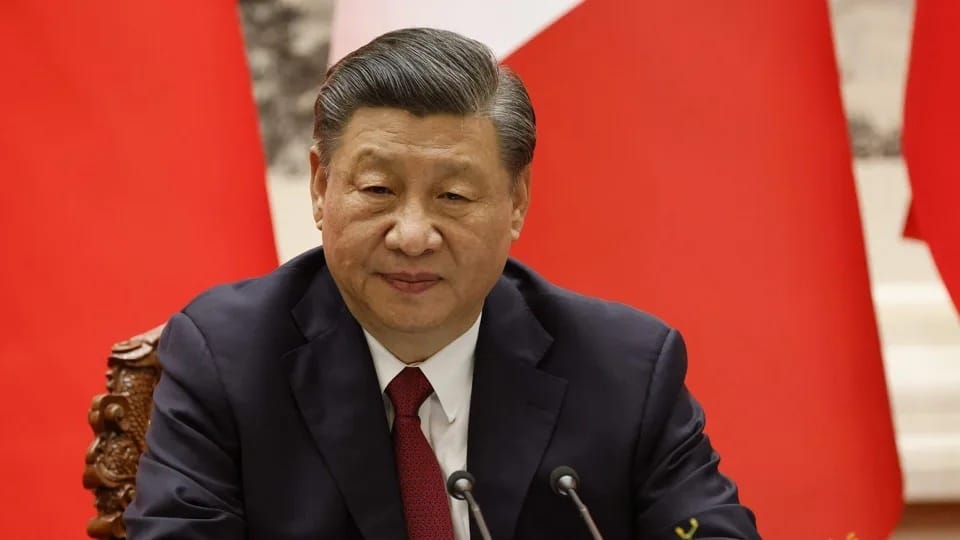

Hello again, Global Recap readers! Are you looking for a job? Maybe… skydive?
Chris Serrano landed his dream job after posting a video of himself skydiving with a sign saying “OPEN 4 WORK.” The post went viral, amassing over 49k likes on LinkedIn.
Jack Peagam, Co-founder and CEO of the social app Linkup, saw Serrano’s post and offered him a job. Peagam responded with a video of himself skydiving with a sign that read "Hey Chris, sorry 2 see you got laid off. We’ve got work 4 U”.
🌎 GLOBAL TRIVIA
The answer to yesterday’s question is … B) Hungary.
And yes, below is a clickable questionnaire! Click what you think is the answer .👇🏻
What is the name of the framework for talks between Washington and Taipei under which the new trade deal will be signed?
📈 TOP NEWS
The US House of Representatives has given its approval to a deal that allows the US to raise its debt ceiling, days before it faces the possibility of defaulting on its debt. Now it’s the Senate’s turn to vote on the bill later this week before President Biden can sign it into law.
The German government has demanded the closure of 4 out of 5 Russian consulates general in Germany in a tit-for-tat move after Moscow set a limit for the number of staff at the German Embassy and related bodies in Russia.
The US and Taiwan are set to sign a new trade deal on Thursday as tensions with China rise. It will be the first agreement under a framework for talks between Washington and Taipei.
3 people, including 2 children, were killed in an air attack on the Ukrainian capital early on Thursday, city officials said. At least 10 people were injured.
The United Arab Emirates (UAE) has decided to withdraw from a maritime coalition led by the United States following a comprehensive assessment of its security needs.
Latvia’s parliament elected Foreign Minister Edgars Rinkevics as the country’s new president on Wednesday. He has served as the top Latvian diplomat since 2011 and had been a long-term supporter of Ukraine against Russian aggression.
🇨🇳 Why Xi Jinping is Warning of “Worst Case Scenarios”

Xi’s Warning: Xi Jinping has issued a rallying cry to his top national security officials, urging them to brace themselves for "worst case" scenarios and navigate through treacherous waters ahead. The CCP has intensified its measures to confront perceived internal and external threats.
“We must adhere to bottom-line thinking and worst-case-scenario thinking, and get ready to undergo the major tests of high winds, rough waves, and even perilous, stormy seas.”
The Challenges: Amidst a barrage of challenges confronting Beijing, such as a faltering economy, a progressively hostile global climate, and internal conflicts, the true motive behind Xi's recent directives seems to align with his need to distract his own people.
Recognizing the urgency of the situation, Xi emphasized the imperative for China to accelerate the modernization of its national security apparatus and bolster its capabilities - with a focus on making them more effective in “actual combat and practical use.”
Xi’s “National Security”: Since coming to power, Xi has expanded the concept of national security to cover everything from:
Politics
Economy
Defense
Culture
Ecology
Cyberspace
Under Xi's concept of "comprehensive national security," China has implemented a series of legislations aimed at protecting itself against perceived threats that encompass virtually every aspect of an individual's daily life.
Security Over Economy?: Currently in China, "security considerations" seem to take precedence over economic growth as the top priority. Recently targeted raids on foreign companies within China have caused alarm among global business communities.
These incidents appear to contradict the Chinese Communist Party's (CCP) ongoing campaign to actively attract foreign investments, in order to rejuvenate an ailing economy that has suffered due to three years of stringent zero-Covid policies.
This prompts the crucial question: “To whom is this notion of "heightened security" primarily directed?” Is it a cautionary message to other nations or a carefully constructed narrative meant to divert attention from the glaring internal challenges plaguing the nation?

